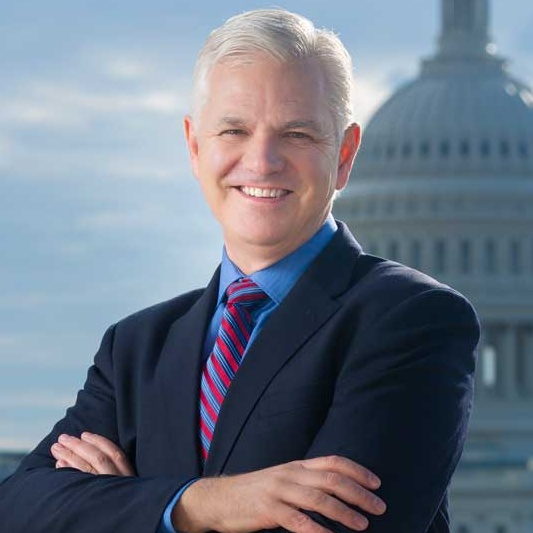 By Riley Iosca // Arizona Alumni Magazine
By Riley Iosca // Arizona Alumni Magazine
Meet Keith Allred, executive director of the National Institute for Civil Discourse, which was established by the University of Arizona shortly after the devastating 2011 shooting in Tucson. January 2021 marked the 10-year anniversary of the shooting at a Congress on Your Corner event held by then-U.S. Rep. Gabrielle Giffords. Six people died in the tragedy; 13 others were seriously wounded, including Giffords.
Allred and his family gave up five acres and five cutting horses in Idaho to move to Washington, D.C., two years ago to launch CommonSense American, which is now integrated into NICD’s cooperative problem-solving programs. Now, Allred says he can’t wait to get to work each morning, because he sees so much genuine commonality across ideological divides.
CommonSense American got its start as The Common Interest, an Idaho program you refer to as “anti-special interest, the anti-party party.” Tell us more about what it means to be a nonpartisan organization.
We tend to hear most from the furthest extremes; they talk louder and longer than everybody else. But, of course, this is supposed to be government by and for the people. It’s supposed to represent all of us in the broad public interest. Given the rise of polarized parties, and the rise in the power of special interests, I felt we needed to find a way to mobilize across the partisan divides, to engage our government by focusing on solutions wise enough to attract broad, diverse support.
You and your family made some significant sacrifices for you to do the work you are doing. What does that say about your optimism?
I’m convinced by the evidence that we face the starkest challenge from partisan rancor in our 230 years under the Constitution. We’ve been more deeply divided as a country before, but our divisions have never cut so cleanly along partisan lines. That kind of divide poses unique threats to our country. The NICD is a platform unlike any other in the country for working on that problem.
In 2011, none of us knew just how bad things would become by 2021, but it turns out to have been really important that Gabby Giffords was galvanizing an organized effort to address declining civility and bipartisanship in Congress even before the shooting. When I thought about the combination of the imperatives of the historical moment and NICD as a platform, I knew it would haunt me the rest of my life if I didn’t say yes. I might be out having a nice ride on my horse, but I’d be sitting there thinking, “I could really be making a difference if I was in D.C.”
You’ve said that “civil discourse” can sound like “a bunch of academics who talk nice about talking nice.” What would you call the NICD if you had to rename it?
There’s a challenge with the term “civil discourse,” because it can be defined superficially as mere politeness. And civility, defined that way, has been used as a means of stifling dissent — particularly stifling underrepresented groups who are making a rational and moral case of systemic injustice in the status quo. At NICD, we define “civil discourse” as the tools needed to engage our differences more constructively, so that we can open up conversation on difficult topics, not shut it down. And that’s the whole point. In fact, one of our flagship programs now is called Engaging Differences. So maybe the Engaging Differences Center.
Could you describe your perspective on our political landscape as well as its associated challenges?
In 2016, Congress broke a record by voting more along party lines than ever before. Meanwhile, more than 50% of voters consider themselves independent, which means that both the Democratic and Republican parties are technically minorities. Right now, issues polarization is lower than most people think, while social polarization has been going up rapidly. Now, that’s an odd finding, right? If we agree on so much, why are we so mad at each other? It’s complicated, but the main reason is that we’ve stacked various meaningful social identities that we have on top of the partisan identity, which is a new phenomenon.
What can any one of us do about the partisan divide? How can we be a part of the solution?
The program I’ll highlight that any American can join is CommonSense American. Joining means you commit 90 minutes a year to review nonpartisan briefs you are assigned, weigh in and share your view with your member of Congress. Through this process, we already helped pass nonpartisan legislation that ended surprise medical billing. This means out-of-network providers are now prohibited from legally obligating Americans to pay bills they didn’t know about or consent to.
